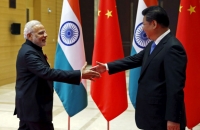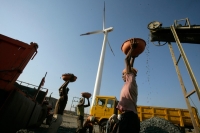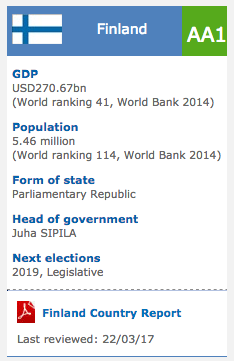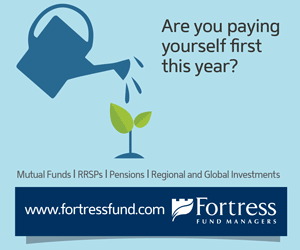India: Deepinder Goyal (right) with Pankaj Chaddah (left) – founder and co-founder of zomato.com.
2013/01/14

Zomato was founded in July 2008 by IIT Delhi alumni and has expanded its services over a span of 4 years to 16 cities across India and the UAE. The website has become Asia’s largest restaurant and nightlife guide with listings of over 48,000 restaurants.
The Delhi-based restaurant info and review website has recently forayed into print as well with the Citibank Zomato Restaurant Guide 2012. Zomato currently employs 150 people. Pankaj Chaddah, the website’s co-founder, recently visited the UAE and added Dubai, Sharjah and Abu Dhabi to the latest city additions list.
He says Zomato will be aggressively expanding globally and including more cities in the Middle East and South East Asia to the website by the end of 2012. Team Arabian Gazette caught up with him and ‘ordered’ the following questions for answers:
How did the idea of Zomato.com first came into being? Tell us about the start-up journey.
While Deepinder and I were working at Bain & Company (management consulting), we noticed that a lot of our colleagues would use the stack of menus collected over time in the office cafeteria to order food. This set of menus was neither updated nor exhaustive, so we just asked ourselves: “What if these menus were available online?” That was how Zomato (then Foodiebay) was born. Deepinder and I then went on to build this database and soon we had gone live with menus for 1,200 restaurants in Delhi NCR (India) in July 2008.
What is it that sets you apart from other competitor sites? What is Zomato’s unique selling point (USP)?
Our content is what sets us apart. We are the only restaurant & nightlife guide with menus, pictures and map locations for most of the 48,000 restaurants listed with us. The user, therefore, knows what to expect when he or she enters the restaurant. Users can access Zomato wherever they are ‐ be it online or on their smartphones. We support all major mobile platforms including iOS, Android, Blackberry, Windows Phone and Symbian. Also the new social layer on Zomato lets users discover more places to eat around them through user recommendations.
In short, Zomato provides the “guide” or the “discovery” experience rather than the yellow page experience which everyone else does. Our clean and simple user experience tops it up.
How did you convince your initial investors to invest in your idea? How much have they invested so far in Zomato.com?
When it comes to consumer facing portals the biggest apprehension is around the famous chicken and egg problem – customers find value only if we have the most exhaustive in-depth information on restaurants while merchants find value only if we have enough customers. We solved this problem by providing a rock solid content platform and a great revenue model to leverage it. This combined with the fact that we were able to find fantastic people to work with us gave our investors the confidence to invest in us. Info Edge has invested $6.5mn in Zomato since August 2010.
What is the average traffic in a day at Zomato.com?
We have an average traffic of over 250,000 visitors on a daily basis.
Based on your reviews and surveys, what works in favour of restaurants from a customer’s point of view?
We have noticed over the past couple of years that the customers have become more evolved when it comes to choosing a restaurant. For them it is no longer limited to just the quality of the food a restaurant serves, but has now extended to the experience of a meal. The main criteria for meal choice have however remained the same – the quality of the food, the ambiance and the kind of service one offers.
Restaurants have now started getting more innovative with their menus by means of experimenting with new dishes through food tasting sessions with their regular customers and local food connoisseurs or by organising special food festivals around various festivals. The experience of a meal is also getting a lot more personalised; the staff is highly courteous and is equipped to offer excellent suggestions to first time customers.
Responding to restaurant reviews is also highly beneficial to the management of a restaurant. Not only are reviews a great feedback mechanism they also work as an excellent opportunity for the restaurants to form a connect with their customers. We have noticed that when a grievance is addressed in form of a review and the management offers to make amends with the customer they have been able to turn an enraged customer into a brand evangelist just by the virtue of accepting a miss and offering to fix the problem.
How many restaurants are enlisted on Zomato? Which cities are featured?
We currently have over 48,000 restaurants listed on Zomato across 16 cities across India and UAE – Delhi NCR, Mumbai, Bangalore, Chennai, Kolkata, Pune, Hyderabad, Ahmedabad, Jaipur, Chandigarh, Lucknow, Indore, Ludhiana, Dubai, Sharjah and Abu Dhabi.
What are the different categories that Zomato reviews?
Zomato focuses only on the FnB sector – so Restaurants, Cafes, Pubs and Clubs.
How do you select reviews on Zomato.com? Do you have in-house food connoisseurs who do the review of restaurants or is it individual contributions?
Zomato doesn’t have an editorial team. We let the users write reviews and rate places. This works really well as we don’t bring the editor bias into the platform and let users see reviews from multiple experiences providing a complete picture.
We have spam control and moderate the reviews on our website to a certain extent. To ensure the quality while simultaneously increasing quantity of the reviews on our website we have taking various engagement initiatives to encourage users to write quality reviews. We have weekly contests rewarding the best reviewers across cities; we have also introduced new social features which have helped in establishing the credibility of hard core foodies.
What has been the mantra behind Zomato’s success? What work ethics do you attribute to this?
The biggest factor for us, as for any start-up, has been the team and the culture around the team. We have been able to put together a great team which never says die, parties hard and works harder. I remember a client asking me a few days ago “Can I have one of your soldiers?”
Second, we have a very high focus on product which ensures our users are happy (after all, the website is for them first). Deepinder looks at the product himself and the rate of new feature rollouts is amazing. We completely revamped the website with the social layer and all our mobile products in a short span of 3 months from the previous overhaul.
The third, LUCK, thankfully has favoured us well so far. We launched during 2008 when only a few people were thinking about internet start-ups. Recessions always favour startups with good quality labour at startup salaries. We were lucky to be working at Bain which supported entrepreneurship, lucky to find investors when we were almost broke, and to have level-headed people running the company who do not find it necessary for us to be a part of the e-commerce madness.
Zomato has partnered with Citibank to launch print handbooks. What was the reason behind that?
Citibank sponsored our print handbooks’ 2012 edition. Citibank is very active in the restaurant space with their dining programme offering discounts on Citibank cards across the country. Hence the synergy made a lot of sense for them to partner with us as the title sponsor of the print handbook. The users can see the entire list of discounts offered on Citibank cards in each of the cities.
How did the UAE expansion plans materialise? What were your reasons behind choosing Dubai and future expansion plans?
We have been focusing on increasing our reach beyond India over the last quarter. Dubai is one of the most popular business hubs globally, has a very vibrant restaurant industry and has high internet penetration making it a good market for us to expand into. We believe there is a huge need of Zomato’s services to the Dubai consumers and we have been getting requests from people in Dubai on social media as well. We launched our Dubai section last month and have received a phenomenal response so far. In a short span of 1 month, we have over 5,000 users visiting Zomato Dubai every day to decide where to eat out or order from.
This response forced us to quickly launch the website for Abu Dhabi and Sharjah as well. We are very happy with the response from UAE as a whole to Zomato and will be expanding to more cities in the Middle East in the next month – you should see Zomato in Qatar in a few weeks.
What difference do you expect to see in the food culture trends in the Middle East as opposed to India?
I have been close to the Dubai market so far, so will comment on that. Dubai has these two huge and distinct segments of restaurants – one very affordable and the other very premium. And both are self-sufficient in terms of the cuisines within themselves. This is largely due to the demographic segregation by locality in the city. Mumbai is the closest to such an industry distribution but in Mumbai the economy segment of restaurants don’t have variety in cuisines.
There is also a very wide range of cuisines available in the market as expats want to go out and eat as they want to get their hands on their own native cuisines. Also, the number of restaurants per resident is extremely high in Dubai with the high spending power of the residents and the tourists. In Mumbai we have 8,300 restaurants for a 15 million population and in Dubai we have 4,200 restaurants for a 2 million population.
I feel these characteristics in the Dubai market are driven by three things:
1) The very high resident expat population
2) The high spending power of the resident
3) The high transient population (tourists)
What marketing strategies do you have in place for UAE?
Food is a need for every human and one of the most common indulgences. Something which makes this easy has a lot of potential to become viral. Zomato, too, is a viral product by nature and hence we rely a lot on word of mouth. We market in a much tiered manner leveraging the word of mouth the most – we first push our brand to people who are most likely to use it – those who are online and are looking for food. This means SEO, SEM and those people who experiment with food and love to write about it.
Step 2 is to continue step 1 and simultaneously build the brand at the crime scene – i.e. at the restaurant, mall, etc. We engage in a lot of “below the line” messaging in collaboration with the restaurant owners and the management of a destination (mall). You will see a lot of activity from us in this sphere soon.
Step 3 is to continue step 1 & 2 and simultaneously take the branding to the masses i.e. making it a household brand and one synonymous with restaurants and nightlife. We started doing TV commercials, outdoor advertisements in India about a year back when we figured the brand, product and the team was ready. I say the team here because any form of mass branding involves a LOT of inbound queries and unless you can handle that there is no sense in advertising.
How many restaurants from UAE have been enlisted so far? Are all adverts listed on Zomato paid?
With over 6,500 restaurants across Dubai, Abu Dhabi and Sharjah, Zomato has become UAE’s most extensive restaurant & nightlife discovery platform for anyone looking to eat out or get food delivered. The information for all restaurants is completely free of cost – both for the merchant and for the user. Our revenue model is advertising-based restaurants advertise on Zomato to tap into the targeted set of users searching for restaurant options to go out within the next 30 minute to 1 hour.
Our revenue model is based on hyper local advertising. Close to 6.5 million users visit Zomato just before lunch or dinner, to decide which is the best place to eat out or order in from around them. This forms a highly targeted platform for players in the food and beverage sector to promote their product.
Zomato is an interesting name. Who conceived it and what does it mean?
We started out as Foodiebay and then re-branded to Zomato. We re-branded for multiple reasons, the primary reason being that we wanted to diversify into non-food categories (nightlife, cafes). We gathered some guts and made the switch possible within a month. Zomato is also a more powerful brand name than Foodiebay would have been – it’s a shorter name, easier to spell and pronounce and has a higher brand recall. We had a few options and everybody unanimously loved Zomato, as it wasn’t constricting to any specific business domain and yet sounded like a Tomato with the zing! Also, Zomato is a very global brand name – everyone we have shared the name with loves it irrespective of the nationality!
- Related Articles

Climate change laws around the world
2017/05/14 There has been a 20-fold increase in the number of global climate change laws since 1997, according to the most comprehensive database of relevant policy and legislation. The database, produced by the Grantham Research Institute on Climate Change and the Environment and the Sabin Center on Climate Change Law, includes more than 1,200 relevant policies across 164 countries, which account for 95% of global greenhouse gas emissions.Indian-U.S. Relations Ready for a lion’s step
2016/10/09 The world’s major democracy is strengthening ties with the world’s biggest economy to strengthen what is considered today, one of the majority indispensable bilateral relationships. A record number of two-sided visits between the nations from their top political figures have highlighted what appears to be a relationship of importance in years approaching. President Barack Obama is the initial U.S. President to visit India twice (2010 & 2015), and Prime Minister Narendra Modi, who came to power in 2014, has visited the U.S. twice in one year.
Asia Economic Roundup: July 2016
2016/07/18 Without a doubt Britain’s decision to abandon the European project will be remembered globally as a wake-up call for political elites around the world. It seems the people chose to go against immediate economic interest and accept an extra financial turmoil in order to address deeply seated social and identity issues. Although Asia’s exposure to the UK is relatively limited and this is not exactly a “Lehman Moment”, nonetheless we can expect a lively debate as policymakers in Asia look for an appropriate response to address the needs of vulnerable households.
Fourth Industrial Revolution The Fourth Industrial Revolution and its impact on India’s job creation and skills enhancement
2016/04/22 A recent study published by the World Economic Forum states that the world is on the verge of the Fourth Industrial Revolution “that will fundamentally alter the way we live, work, and relate to one an extra. In its scale, scope, and complexity, the transformation will be unlike anything humankind has experienced before.”
Surya Prakash Madrecha, Chairman and MD of Trimax
2016/02/07 Trimax is proving to be the ideal IT resource partner in India, inclunding for major world companies such as Facebook and Microsoft. Surya Prakash Madrecha, Chairman and MD of Trimax, explains how its electronic payment applications and training in the transportation sector in particular – inclunding its partnerships in the telecom, banking, government, healthcare, retail and education sectors – are set for exponential increase as it continues to bring rural communities online.
- India News
-
- INDIA: India's Wholesale Price Inflation Slows In June
- CHINA: Indian economic diplomacy in the Belt and Road era
- INDIA: Triple Challenge For Agriculture: Trade, Food Security And New Technologies
- ARMENIA: Crimea: Circumventing Trade Sanctions Via Novorossiysk
- INDIA: Israel and India Relations Warm As Netanyahu, Modi Take Awkward Barefoot Beach Stroll
- INDIA: Indian Prime Minister Modi and Israeli Prime Minister Netanyahu
- Trending Articles
-
- FRANCE: Bastille Day Military Parade - Paris Macron shaking hands with Donald Trump's wife Melania
- SWEDEN: Riksbank Unlikley To Follow Ultra Loose Policy Amid Rising Core Inflation
- INDIA: India's Wholesale Price Inflation Slows In June
- IRELAND: Ireland Q1 GDP Contracts 2.6%
- EUROPEAN UNION: European Markets Struggle At The End Of The Trading Week
- MALAYSIA: International cooperation pushes Malaysia towards higher education goals











